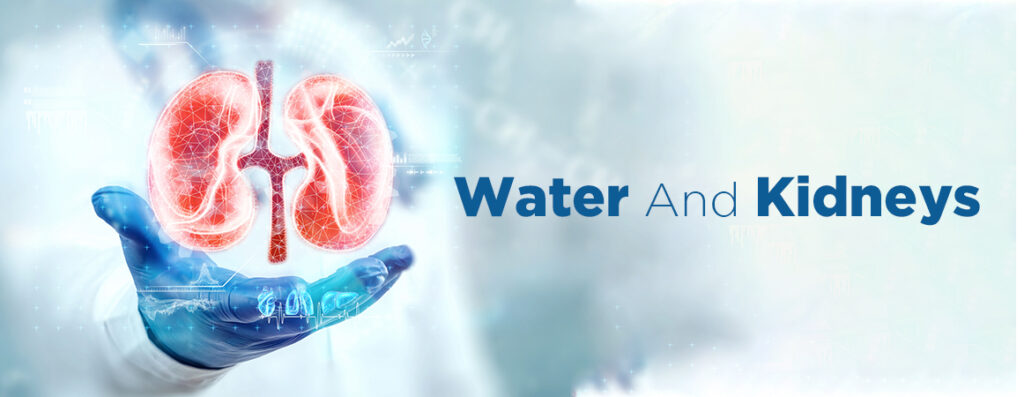Water and Kidneys: Understanding the Connection
Importance of Water for Kidneys
Hydration and Kidney Function
Water is crucial for the kidneys to filter waste and toxins from the blood, producing urine that carries these substances out of the body. Sufficient water intake helps maintain the balance of electrolytes and fluids necessary for proper kidney function.
The Devastating Effects of Dehydration on Kidneys
Dehydration’s impact on kidneys disrupts their filtration efficiency, leading to a decrease in urine production and a concentration of waste materials in the bloodstream. This concentrated urine heightens the risk of developing kidney stones and other urinary tract complications, emphasizing the critical need for sufficient water intake.
Kidney Stones and Hydration
Causes of Kidney Stones
Kidney stones develop when minerals like calcium, oxalate, and uric acid crystallize in the urine, clumping together to form solid masses. Dehydration, a critical risk factor, leads to concentrated urine, facilitating the formation of these crystals. Drinking enough water is essential for thinning urine and preventing the accumulation of minerals that can lead to kidney stones.
Understanding Kidney Stone Formation
The crystallization and aggregation of minerals and salts in urine can lead to kidney stones. Dehydration exacerbates this process by creating an environment where these minerals are more likely to crystallize. Maintaining adequate hydration is paramount in mitigating the risk of kidney stone formation.
Preventing Kidney Stones
Preventing kidney stones involves adopting proactive measures to maintain kidney health and minimize the risk of mineral accumulation in the urinary tract. Here are key strategies:
- Hydration: Adequate fluid intake, primarily water, is crucial to dilute urine and reduce the concentration of minerals that form kidney stones. Try to drink at least eight glasses of water each day.
- Dietary Adjustments: Consume a balanced diet that includes foods low in oxalate, such as leafy greens, and moderate your intake of salt and animal proteins, which can contribute to stone formation.
- Lifestyle Choices: Engage in regular physical activity to maintain a healthy weight and reduce the risk of obesity, which is linked to kidney stone development.
- Monitor Medical Conditions: If you have a history of kidney stones or underlying medical conditions like hyperparathyroidism or urinary tract infections, follow your healthcare provider’s recommendations for managing these conditions effectively.
By integrating these practices into your daily routine and maintaining regular medical check-ups, you can significantly lower the likelihood of developing kidney stones and promote overall kidney health.
Tips for Maintaining Kidney Health
Maintaining kidney health is essential for overall well-being and involves adopting habits that support proper kidney function and reduce the risk of kidney disease. Here are key tips:
- Stay Hydrated: Drink plenty of water throughout the day to help flush toxins and waste products from the kidneys.
- Follow a Balanced Diet: Consume a diet high in whole grains, fruits, vegetables, and lean meats. Limit salt, sugar, and processed foods to support kidney function.
- Manage Blood Pressure: Keep blood pressure within a healthy range through diet, exercise, and medication if necessary. High blood pressure can damage the kidneys over time.
- Monitor Blood Sugar Levels: If you have diabetes, maintain stable blood sugar levels to reduce the risk of kidney damage associated with diabetes.
- Avoid Smoking and Limit Alcohol: Both smoking and binge drinking too much alcohol can harm the kidneys and raise the risk of renal disease.
- Exercise Regularly: Physical activity promotes overall health and helps maintain a healthy weight, which is beneficial for kidney function.
By incorporating these tips into your lifestyle and seeking regular medical check-ups at your nearest MMI hospital, you can help protect your kidneys and promote long-term kidney health.
Conclusion
Maintaining adequate hydration is crucial for kidney health, as water plays a fundamental role in their function and overall well-being. By understanding the impact of hydration on kidney health, recognizing the risks of dehydration, and adopting healthy habits like regular water intake and balanced nutrition, individuals can support optimal kidney function and reduce the risk of kidney stones and other kidney-related issues. Prioritizing kidney health through hydration and lifestyle choices ensures long-term wellness and quality of life.
Post Disclaimer
The information contained in this post is for general information purposes only. The information is provided by "Water and Kidneys: Understanding the Connection "and while we endeavour to keep the information up to date.
Legal Disclaimer
We do not claim to cure any disease which is considered’ incurable ‘ on the basis of scientific facts by modern medicine .The website’s content is not a substitute for direct, personal, professional medical care and diagnosis. None of the medicines mentioned in the posts ,including services mentioned at "medicineguide.us" should be used without clearance from your physician or health care provider.
Testimonials Disclaimer– : Results may vary, and testimonials are not claimed to represent typical results. The testimonials are real, and these patients have been treated with homeopathy treatment from our clinic . However, these results are meant as a showcase of what the best, Medicine can do with their disease contions and should not be taken as average or typical results.


